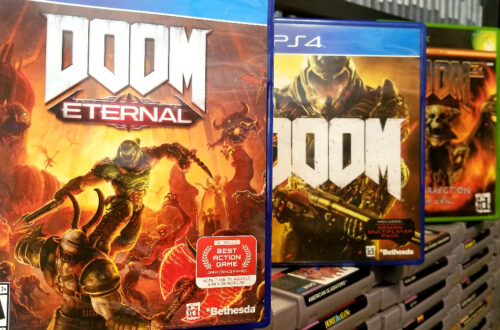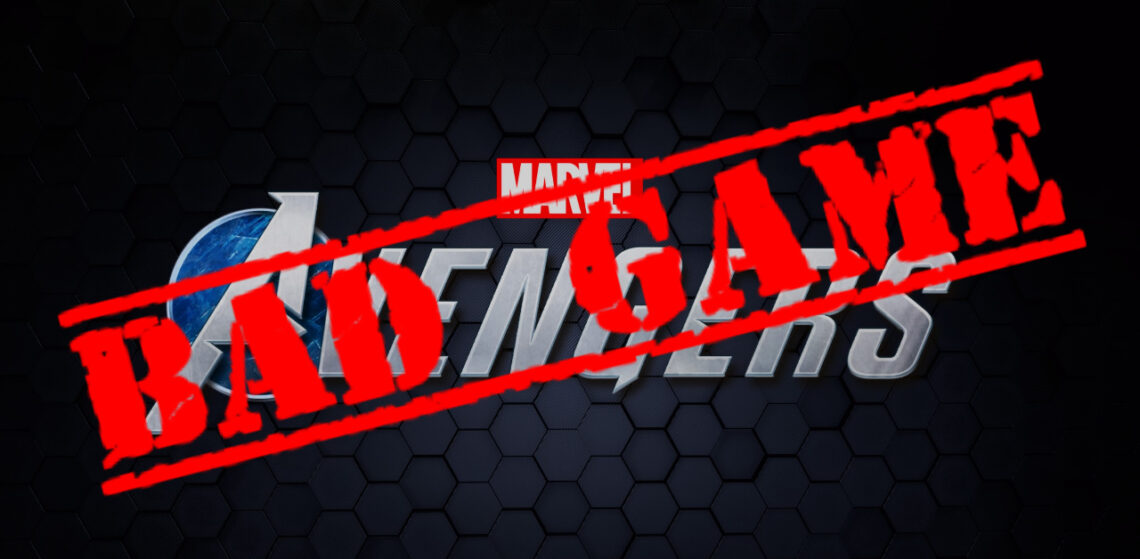
The Marvel’s Avengers Game and Why It Sucks
Warning: Includes minor story spoilers for Square Enix’s Avengers
Late 2020, shortly following the release of Marvel’s Avengers on September 4, Game Informer summarized the Square Enix Title as follows:
“Crystal Dynamics delivers a fun brawler that hones in on each of the heroes’ unique abilities.”

I’ve subscribed to the Game Informer physical magazine for about five years now, and usually, I agree with their reviews on games.
This one, however, I vehemently disagree with. The review gave the superhero release a generous 8.75 out of 10.
I would contend it’s closer to a 4 out of 10.
Maybe even worse depending on my mood.
The Excitement
Marvel parting ways with Activision back in 2014 was one of the best things to happen in the world of superhero video games. The monopoly on Spider-Man and other well-known Marvel properties did not do wonders for their video game counterparts. While there were certainly a few bright spots (such as my personal favorite 2000’s Spider-Man), most of the titles were okay at best.
The separation from Activision put Marvel games in an exciting place. They could now be shopped around to other developers and publishers for efforts towards something innovative and exciting: aspects that Activision releases struggled with for their superhero-themed releases.
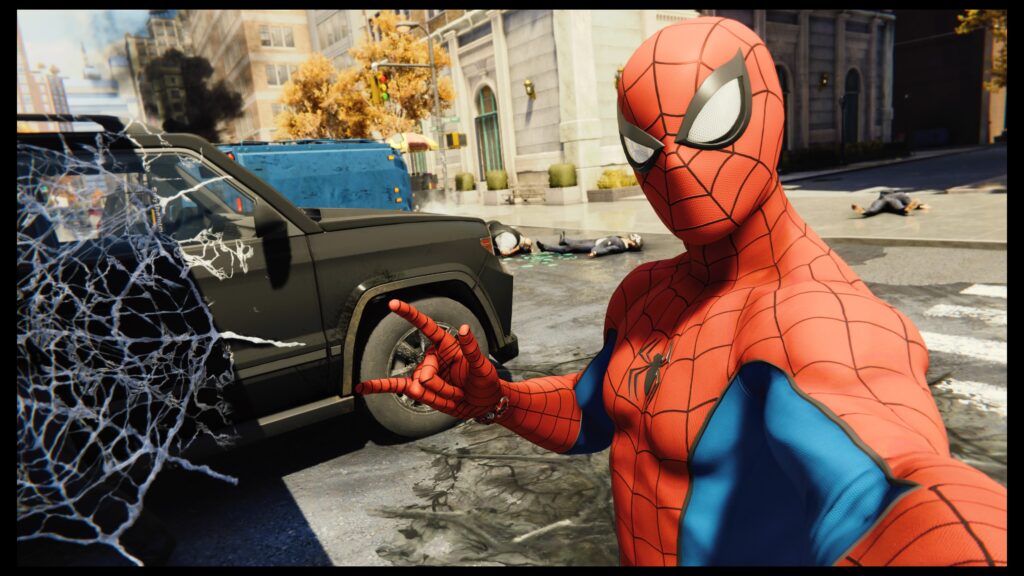
Insomniac’s 2018 Spider-Man was a clear-and-present winner in this realm. The Ratchet and Clank developer had a solid track record which only continued with Spidey’s debut on the Playstation 4. The game really emphasized aspects of the character that were never before seen on previous iterations, such as through web-swinging and fast-paced combat.
Thanks to Insomniac, the bar was raised substantially for not only Marvel games, but superhero games as whole.
All eyes turned to Square Enix for Marvel’s Avengers.
Could it meet the immense amount of hype surrounding it?
As you probably gathered from the introduction, I would wager it did not. Between financial disappointments, a diminishing player base, and many other reasons, Avengers fell far short of the new standard set by Insomniac.
But what went wrong?
The Disappointment
The short answer: A LOT.
I will be the first to admit, many of my perceptions to anything Marvel-related might be through rose-colored glasses. I’m willing to cut some slack on things most normal people would not, just because I love the Marvel brand so much.
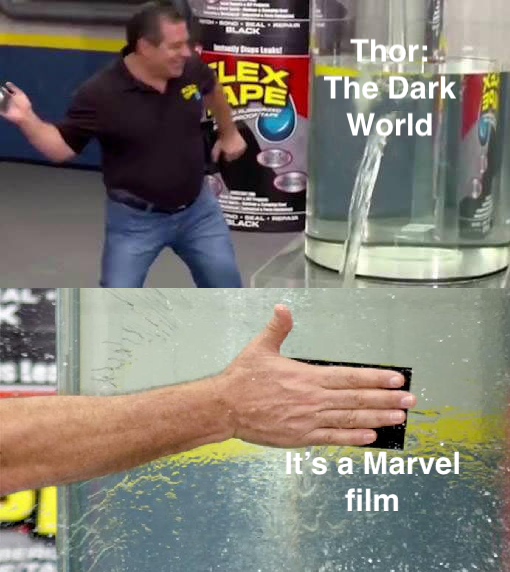
For instance, Thor: The Dark World gets pooh-poohed for being one of the worst installments in the Marvel Cinematic Universe, but I still enjoyed it overall.
However, as much as I tried to like it, Square Enix’s Avengers quickly became something that was not only problematic for many reasons, but also inherently unenjoyable. I really gave the game a fair shake. As in, I played through the entire single-player campaign — hoping, praying that maybe it would improve as the story progressed.
“Perhaps it would be like Agents of S.H.I.E.L.D.,” I thought. Rocky in the first season, but would improve with time.
I can say with certainty that this is not the case.
The Disconnect
Ludonarrative Dissonance. Such a fun mix of syllables that rolls off the tongue.
But what does it mean, exactly?
In a nutshell, ludonarrative dissonance is a critical concept that explores the disconnect (or dissonance) between a game’s narrative and the actual mechanics. The term first came into the forefront from blogger Clint Hocking in his analysis on Bioshock back in 2007.
Few will disagree that Bioshock really laid the groundwork for compelling storytelling in gaming as a whole. But Hocking noted that despite touting a message of free will versus determinism, Bioshock did not actually uphold this message in the moment-to-moment gameplay.
Rather than having the ability to choose one way or another, we as players are forced to brutally murder hundreds of splicer NPC’s to get to the inevitable conclusion of the game. According to Hocking, there is a disconnect between the narrative and the mechanics of Bioshock — aka ludonarrative dissonance. (This video does a great job explaining the concept in detail)
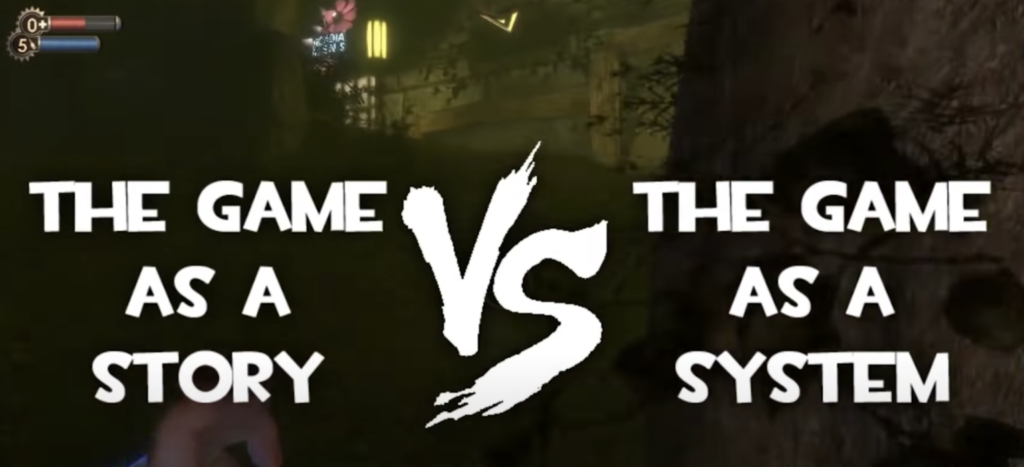
But why did I bring this up? To sound fancy with fifty cent gaming terminology?
Maybe partially, but the real reason is because I believe Avengers encapsulates this critical concept to a tee.
The Gameplay
Square Enix’s early look at the Marvel Avengers game in 2017 had me excited. With Marvel Studios’ being an unstoppable box office titan (Thanos pun intended) and other gaming announcements like Insomniac’s Spider-Man in full effect, it was a great time to be a Marvel fan.
It’s too bad the game didn’t live up to the hype. I’m not alone in my thinking, but I have really thought long and hard about what went wrong in the past nine or so months since the game was released.
And to me, it really comes down to one word: disconnect.
There is just so much about Avengers that fails to meet my expectations as both a Marvel fan and a video game fan. The first thing that comes to mind is the drab gameplay itself. Almost every mission boils down to beating up a faceless hoard in a killbox, then moving onto the next killbox. There is some variety in enemies (such as A.I.M. agents, Ultron bots, etc), but very little variety within the enemy types themselves.
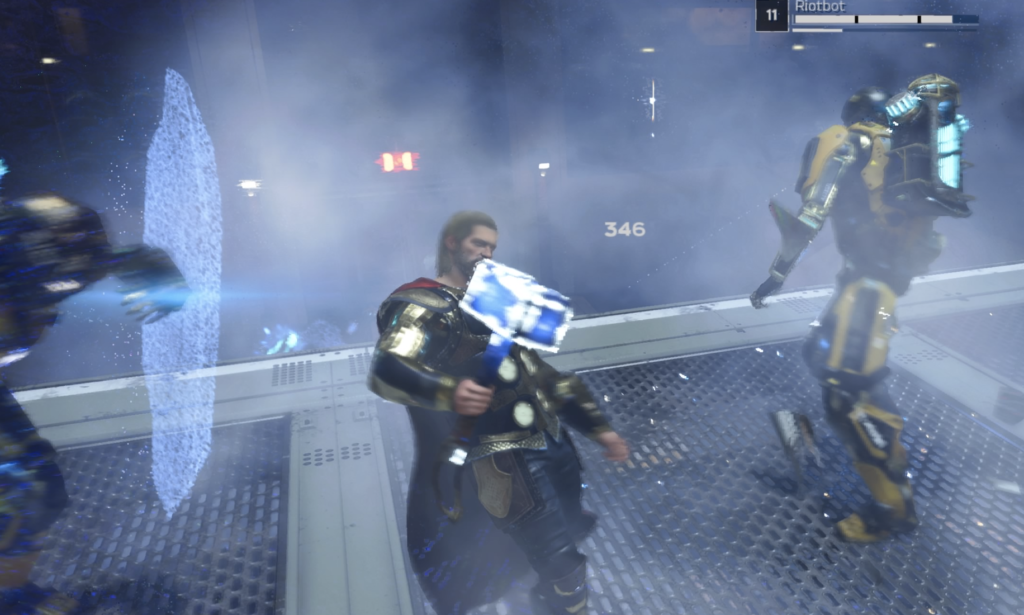
And oftentimes, these mini battles are broken up by small puzzles in an effort to mix things up. But all this does is further add to the frustration, which stems from repetitive and monotonous gameplay. The game seems promising at first, but relies on the same formula for pretty much the entire 12 – 15 hours I spent through the main campaign.
Astute readers might note that the last couple paragraphs may seem to be a similar description to the gameplay in Doom: Eternal, which I absolutely adored. And yes, the oversimplification is correct, you do go from killbox to killbox blowing up enemies. However, Doom does a phenomenal job in the moment-to-moment, forcing the player have to make split-second strategic decisions that feel so good in accomplishing.
On the other hand, everything about the Avengers game is a dull, long grind. Not exactly what I want out of a superhero title.
And then there’s the looting system. I don’t have problems with loot in most games, but when developers *cough*EA*cough* force them in as paid options, that’s when we will have a problem.
Granted, Avengers isn’t as bad as other games in recent years, but it still falls far short in comparison to many Triple-A titles.
And also: there’s so. Many. MENUS.
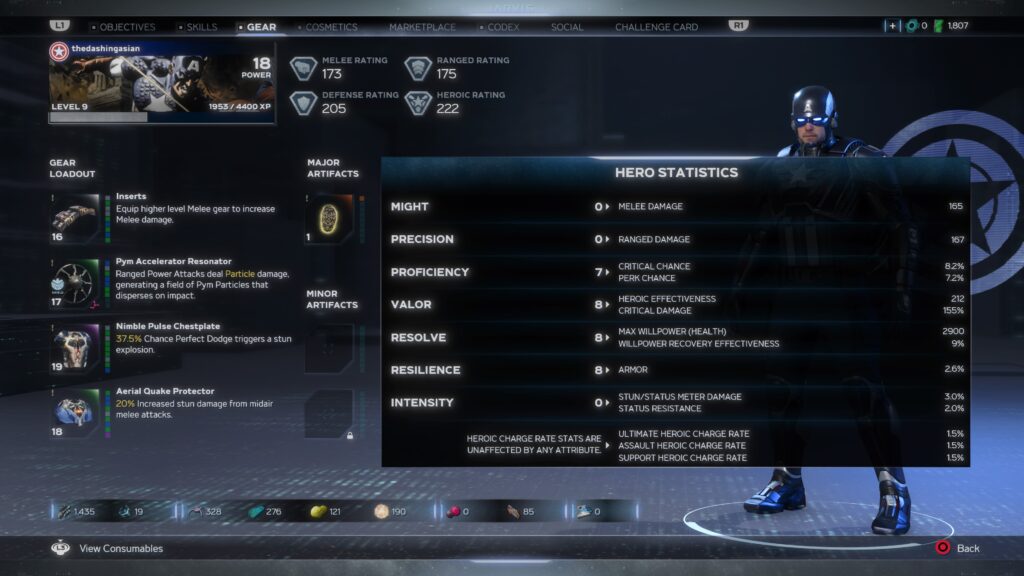
To me, if a game lends itself to needing lots of menu items (such as an RTS), then that’s fine; but for a game that should feel a lot simpler, the developers placed way too much complexity. I didn’t care about learning the plethora of currencies available in-game, because the abilities they garnered were also things I didn’t care about.
Avengers makes a valiant effort to provide each character with unique abilities and lots of fighting options; but in all honesty, I just button-mashed the same two moves and got through those hordes of enemies fairly effortlessly.
The Narrative
At this point, it’s pretty clear that these ramblings from me are fairly negative, but there is, believe it or not, at least one aspect I do enjoy.
It is fun to look at.
My favorite “game” in Avengers was, in all honesty, using photo mode to capture the protagonists in various heroic positions. Props to the design team for making the iconic characters look like their comic book counterparts without ripping off the exact same looks from Marvel Studios. The voice acting is also well done from the star studded cast, composed of talent like Laura Bailey, Nolan North, and Troy Baker.
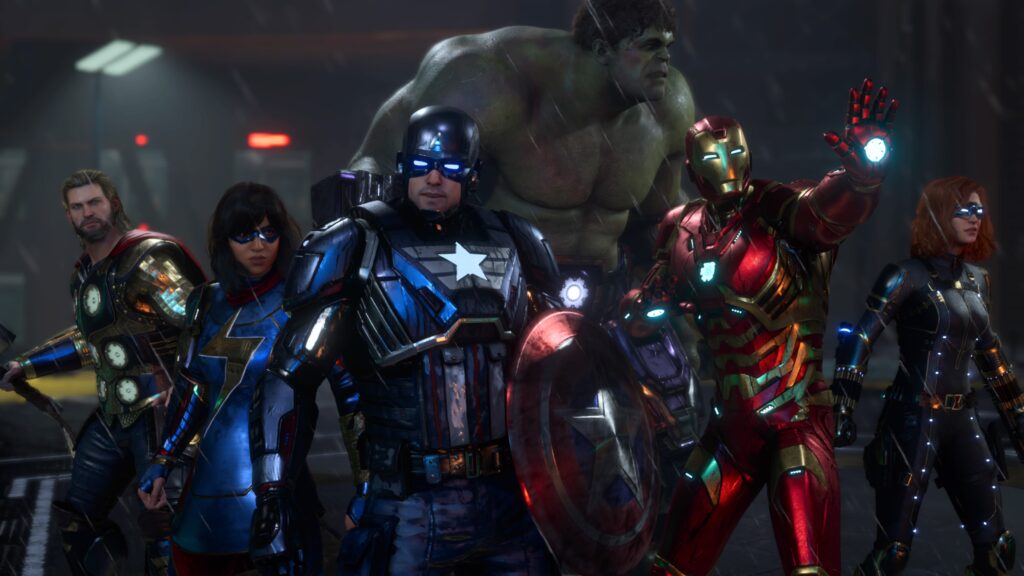
But that’s about it.
Narratively, Marvel’s Avengers game seemed promising in the opening cutscenes, if not a bit formulaic in its story approach. There was a cool single-take sequence where I got to play through all the main Avengers fighting through a bunch of dudes on a bridge set piece, setting the stage for something epic in the coming hours.
Except I never received that something epic.
This is where things started to go awry for me. After that initial bridge sequence, a plot device caused all the Avengers to go their separate ways. The next several hours of gameplay see Kamala Khan aka Ms. Marvel recruiting the former Avengers and trying to get them to play nice for posterity’s sake. This is all swell and dandy until I realized I was forced into playing particular characters for campaign missions.
The problem with this is I had played all of the Avengers already in the bridge sequence. There were clearly a few that were fun to play, and a few that were not fun to play. And I had no choice in the main campaign to select between my favorite characters or to choose my fireteam. Part of this, I suppose, was in service to the overarching story, since some of the main Avengers were in hiding until Kamala convinced them to come back.
But it felt annoying to be forced to play as Hulk for key missions, when really I just wanted to play as Iron Man the entire time.
Speaking vaguely, in the main campaign, the player really only gets to play Captain America for like two or three missions. Once for the opening bridge montage, and then for a bit near the end of the game. And one of the final missions sees Cap fighting a rogue Helicarrier. One would think that this is a quest better suited for someone with inherent flight capabilities like Thor.
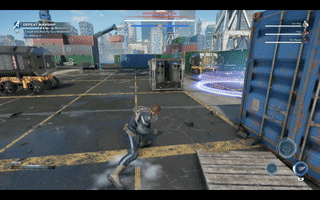
But instead, Captain America is the one tasked with taking down this massive flying ship, using Sonic the Hedgehog-esque booster pads to jump onto the helicarrier.
Would Cap be the best choice for this mission in the source material?
Probably not.
Would he use strange glowing bouncy trampolines to get up to the ship?
Definitely not.
The Qualms
Another example I can think of is when Iron Man has to enter some underground facility to get to, I presume, a villain’s lair of some sort. The details are hazy to me, so I’m paraphrasing a bit. But the gist of the mission is this: The Armored Avenger has to punch his way through more hoards of faceless enemies, to eventually get to a giant door that requires components to open.
So me, as the brilliant Tony Stark, has to walk to other wings of the facility to gather giant components that go into giant slots to then open the door.
That is not what Iron Man would do in a life or death situation. He would use his Unibeam to blast through the door. He would not spend thirty minutes traipsing through the foundry, hoping to find these giant batteries that are left in open sight.
This moment, like the Captain America vs. Helicarrier battle, is a prime instance of the game’s mechanics not lining up with the narrative. Or even how the heroes would act in those situations.
Ludonarrative dissonance.
And don’t even get me started on the loot chests. The game is riddled with them, and seemingly around every corner. Was this really the best way to exhibit new available gear to the player? Why clutter this beautiful game with out-of-place visual assets that would be more appropriate for a pirate game?
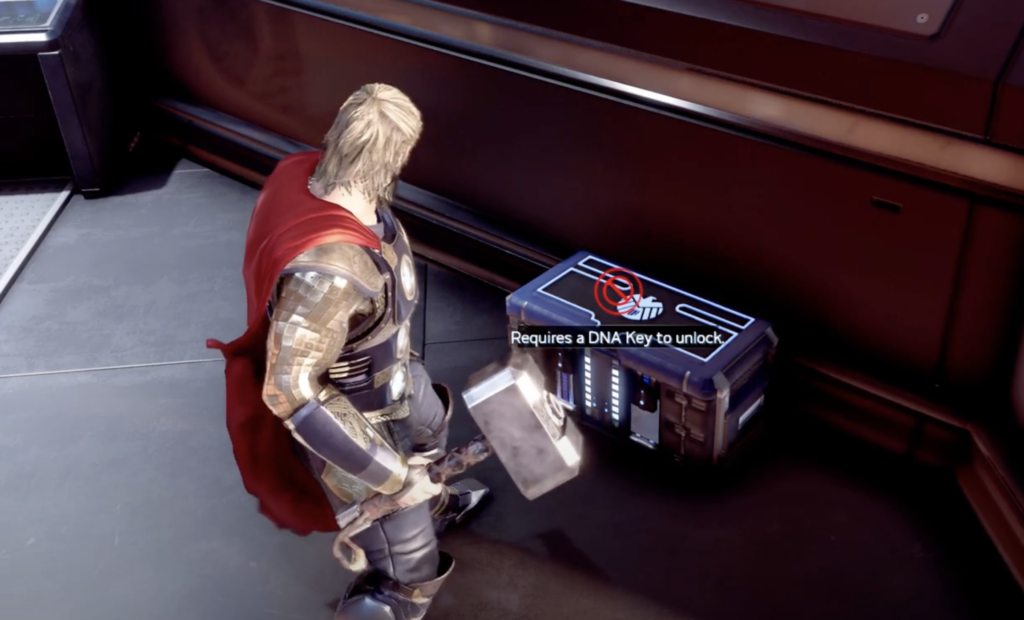
Thor: Save the world, or open thine chest?
I know that this isn’t a problem solely restricted to the Avengers game, but it’s just another example of the disconnect between the gameplay and the narrative. Seeing a strange, glowing chest in the war room of the Avengers HQ is not only distracting, but jarring.
I could go into so many other nit-picky details, such as the fact that the gear items you pick up don’t change your character’s appearance.
Or that the final boss battle is relegated to nothing more than a Quicktime event with three button presses.
Or the initial horrendously long load times (which was later patched for next-gen consoles, but not for my PS4 Pro).
But hopefully I’ve made my point.
The Juggle
Insomniac’s Spider-Man did a largely magnificent job upholding its own vision. It was a fairly straightforward single-player experience with excellent gameplay and a great Spider-Man narrative.
Avengers, by contrast, had a bit of an identity crisis.
And this, I think, was the cardinal sin.
The game tried to do too much, and ended up not being particularly good at any one thing.
This is evidenced from the moment the player opens up the title menu, where there are so many different options. I’ve probed around a bit in the single player stuff, the extra missions, and the multiplayer stuff — and all of it is rather meh.
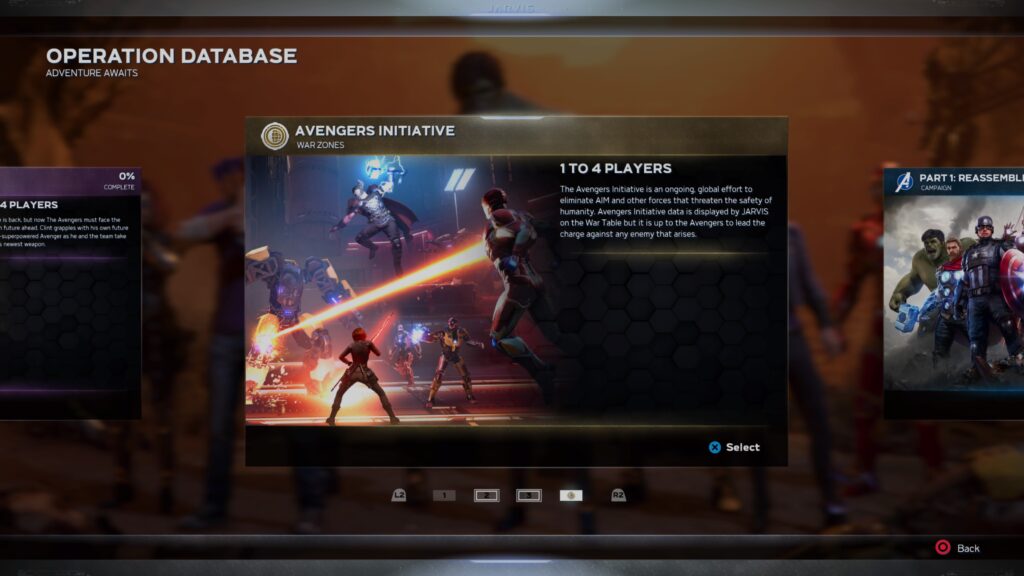
Rather than spreading themselves thin, and spending so much time developing all of these wildly different playable options, I wonder how much of a better game Avengers could have been had the developers restricted their focus.
I’m no game designer, and I know that these decisions are way above my area of expertise. But I can’t help but speculate what could’ve been had Square Enix made the decision to remove all microtransactions and the tacked-on multiplayer aspect. The single-player campaign is what we were all excited about, evidenced in the immediate lack of interest for the online features.
The Exhortation
This isn’t meant to be a smear piece for the Avengers game, as much as it might seem that way. This is an honest-to-God look at a game that I was genuinely excited for, which fell flat on almost every level for me.
Obviously, there are some that disagree with me, as evidenced in the aforementioned Game Informer review.
But to me: playing a superhero game should, to some extent, feel awesome.
Instead, I as a player found myself having to force myself to keep going. There were no compelling carrots on sticks within Avengers, except for my own internal deception that maybe, just maybe, the story and gameplay would improve.
But it never did improve.
In fact, I had more fun watching the story cutscenes than I did playing the game. When it came time for me to pick up the controller, I would sigh. That’s how much of a chore it was for me to continue through the campaign — a massive problem in itself.
Now, I never wish for a game to fail, especially with all the blood, sweat, and tears that are poured into it from hundreds of talented individuals over the course of years. But people do vote with their wallets, and hopefully, this glaring misstep of a game is a wake-up call to other game companies.
Marvel’s Avengers is not the way to make a superhero game.
Maybe Kevin Feige should also oversee the video game division of Marvel?


